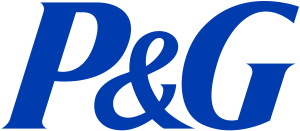 Procter & Gamble announced recently that it has signed an agreement with Merck KGaA’s consumer health entity for $4.21 billion to expand its growing health care market segment particularly in the Latin America and Asian markets. The deal is anticipated to close by the fourth quarter of the year.
Procter & Gamble announced recently that it has signed an agreement with Merck KGaA’s consumer health entity for $4.21 billion to expand its growing health care market segment particularly in the Latin America and Asian markets. The deal is anticipated to close by the fourth quarter of the year.
More than 3,300 Merck’s consumer health workers are expected to relocate to P&G. Last year, the shares of P&G dropped drastically by 13% compared to the previous year as its consumers switched to other brands.
The Merck unit is focused on developing vitamins and food supplements brands such as Femibion a women supplement, Nasivin nasal decongestant, Neurobion, Seven cod liver oil and more. Merck generate about $1 billion in the annual sales of its over-the-counter brands. The deal will enable P&G to enhance its product portfolio of consumer healthcare products.
The latest deal is one of the largest acquisitions that P&G has considered in the recent past. Merck advertised the selloff its consumer health unit last year as part of the company’s strategy to focus its efforts on the prescription drugs and refurbish its pipeline endeavors. Other firms that were eying the Merck consumer health care unit include; Nestle, Perrigo and Stada among others.
Generally, prescription-free remedies are known to offer stable revenues over a long period of time due to consumer brand loyalty despite their low profit margins than the pharmaceuticals. However, the stiff competition in the healthcare industry particularly from the new entrants such as Amazon a giant online retailer, and other affordable store brands have increasingly weighed down the profits in the US and global markets.
For instance, in 2017, P&G earned only $7.5 billion from its healthcare products, which is about 12% of the company’s group sales. Merck plans to use the proceeds from the deal to reduce its debt, enhance its business entities including the chemicals, pharmaceuticals, laboratory equipment and others.
